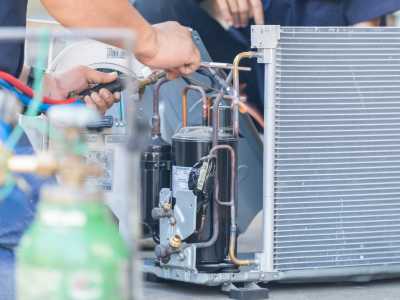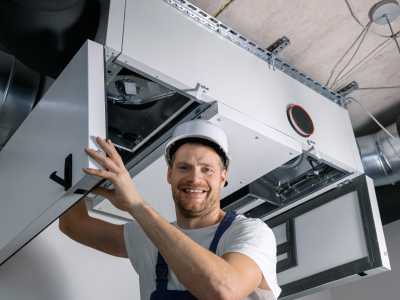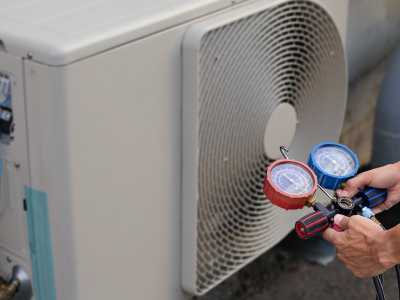When it comes to heating and air conditioning, there are certain industry practices that are considered standard. These practices have been developed and refined over time to ensure the best results for customers and to maintain the integrity of the HVAC industry.
In this blog post, we will cover some of the standard heating and air industry practices and why they are important.

Why Are Standard Practices Important in the HVAC Industry?
The use of HVAC industry best practices is very important in the HVAC industry. This is because heating and air conditioning systems require specialized knowledge and skills to install, maintain, and repair. Standard practices help to ensure that all HVAC professionals are consistently following the same guidelines and procedures, and high-quality results for customers.
Safety First
One of the most important reasons for standard practices in the HVAC industry is safety. Heating and air conditioning systems involve electricity, gas, and other potentially dangerous components. By following standard safety practices, HVAC professionals can protect themselves and their customers from accidents and injuries. Some of the standard safety practices in the HVAC industry include:- Proper use of personal protective equipment (PPE)
- Following lockout/tagout procedures
- Proper handling and disposal of refrigerants
- Adhering to electrical safety guidelines
- Following proper ladder safety protocols
Consistency and Quality
Standard practices also help to ensure consistency and quality in the HVAC industry. By following the same procedures and guidelines, HVAC professionals can produce consistent results for their customers. This is important for maintaining the reputation of the industry and building trust with customers.
Standard practices also help to maintain the quality of work in the HVAC industry. By following these simple practices, HVAC professionals can ensure that their work is up to industry standards and that their customers are receiving the best possible service.

Standard HVAC Practices
Now that we understand the importance of standard practices in the HVAC industry, let's take a look at some of the specific practices that are considered standard.
Proper Sizing of HVAC Systems
One of the most important standard practices in the HVAC industry is proper sizing of HVAC systems. This involves calculating the heating and cooling load of a building and selecting the appropriate size of HVAC system to meet those needs. An HVAC system that is too small will struggle to keep up with the heating and cooling demands of a building, leading to discomfort for the occupants and potential damage to the system. On the other hand, an HVAC system that is too large will cycle on and off frequently, leading to increased wear and tear and higher energy bills.
By following proper sizing practices, HVAC professionals can ensure that their customers have a system that is the right size for their needs, leading to optimal comfort and efficiency.
Regular Maintenance and Inspections
Another standard practice in the HVAC industry is regular maintenance and inspections. HVAC systems require regular maintenance to keep them running efficiently and to catch any potential issues before they become major problems. Some of the standard maintenance tasks that HVAC professionals should perform include:- Changing air filters
- Cleaning and inspecting coils
- Checking refrigerant levels
- Lubricating moving parts
- Inspecting electrical connections
- Checking for leaks and cracks
Proper Installation Techniques
Proper installation techniques are another crucial standard practice in the HVAC industry. A poorly installed HVAC system can lead to high energy bills, frequent breakdowns, and even safety hazards. Some of the standard installation techniques that HVAC professionals should follow include:- Properly sealing ductwork to prevent air leaks
- Ensuring proper airflow through the system
- Following manufacturer's instructions for installation
- Properly securing all components of the system
- Testing the system after installation to ensure proper function
Proper Refrigerant Handling
Proper handling of refrigerants is another important standard practice in the HVAC industry. Refrigerants are used in air conditioning systems to cool the air, but they can be harmful to the environment if not handled properly. HVAC professionals must be certified to handle refrigerants and must follow proper procedures for handling, storing, and disposing of them. This includes using the correct equipment and following EPA regulations.
By following proper refrigerant handling practices, HVAC professionals can protect the environment and ensure the safety of their customers.

Best Practices for HVAC Professionals
In addition to the standard practices mentioned above, there are also some best practices that HVAC professionals should follow to ensure the best results for their customers.
Ongoing Training and Education
The HVAC industry is constantly evolving, with new technologies and techniques being developed all the time. To stay on top of these changes and provide the best service to their customers, HVAC professionals should engage in ongoing training and education. This can include attending conferences and workshops, taking online courses, and staying up to date on industry news and developments. By continually learning and improving their skills, HVAC professionals can provide the best possible service to their customers.
Good Communication with Customers
Another best practice for HVAC professionals is good communication with customers. This includes explaining the work that will be done, providing accurate estimates, and keeping customers informed throughout the process. Good communication can help to build trust with customers and ensure that they are satisfied with the service they receive. It also allows HVAC professionals to address any concerns or questions that customers may have, leading to a better overall experience.
Conclusion
Standard practices are an essential part of the HVAC industry. They help to ensure safety, consistency, and quality in the work that HVAC professionals do. By following these practices, HVAC professionals can provide the best possible service to their customers and maintain the integrity of the industry. By also following best practices and staying up to date on industry developments, HVAC professionals can continue to improve and provide the best service possible.
Engle Services offers HVAC unit installation, HVAC unit repair, and HVAC maintenance in Sylacauga, Talladega, Birmingham, Shelby County (Hoover, Chelsea), Alabaster, Pell City, Dadeville, Wetumpka, Montgomery, Fort Walton Beach (Florida) and all their surrounding areas.
Ready to schedule with our team of HVAC Technicians, Electricians, and Plumbers?
Schedule an appointment online or give us a call at (855) GET-ENGLE
